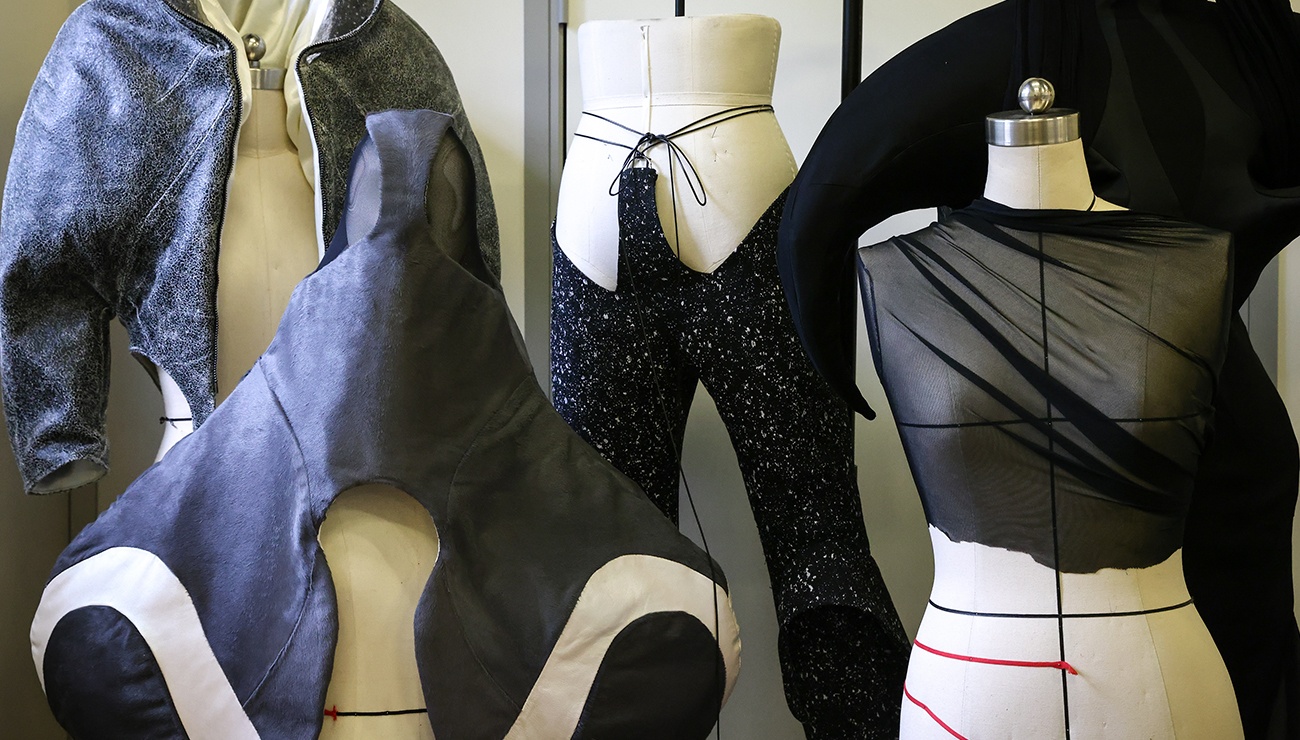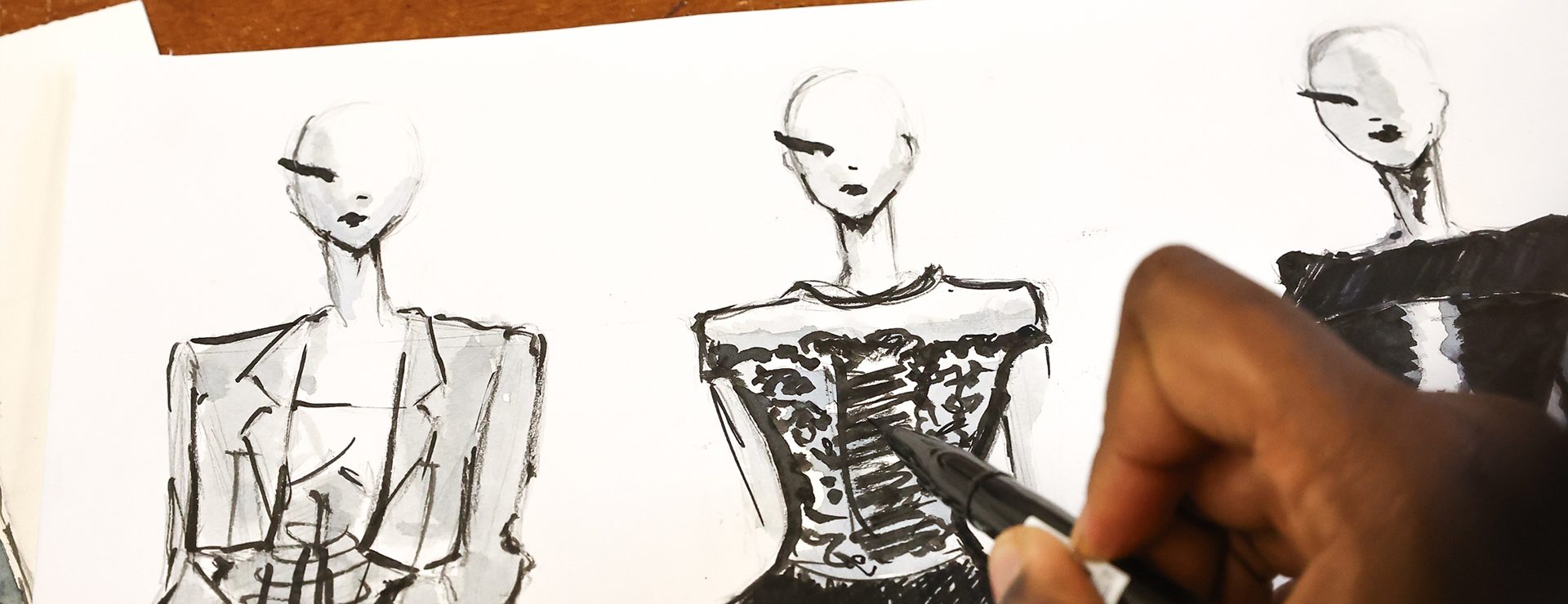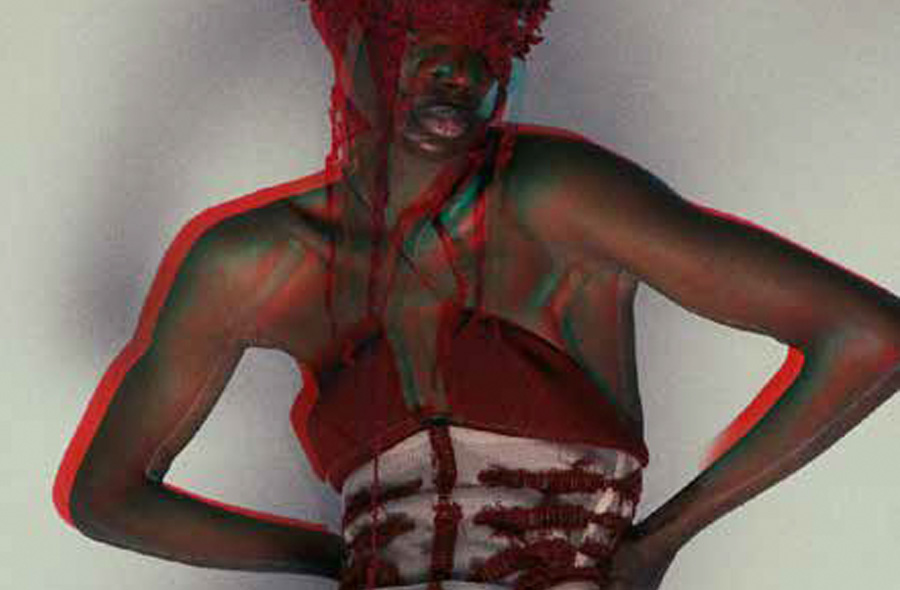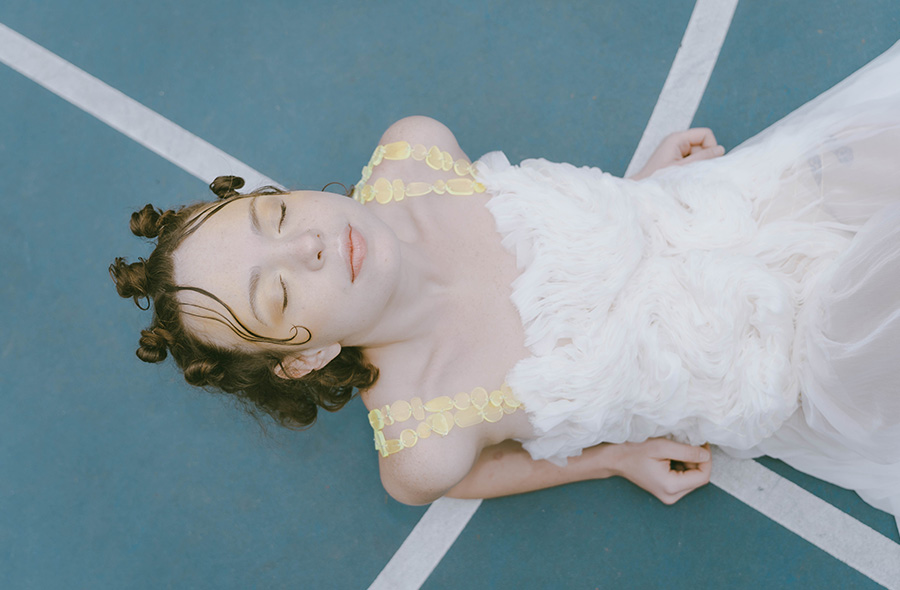- Available in: Paris and Istanbul
- Language: Full French or Full English
- Duration: 2 years
- Cooperative Education: French Language Only
- ECTS: 120
- Next intake: September 2025
This creative direction specialization is designed for students who wish to pursue a career in fashion house management. The program is structured around 6 modules.
The first module is a workshop designed to help students develop their artistic identity, allowing them to discover themselves not only as creatives but also as individuals.
The other 5, titled « Studios », are developed around the foundational themes of the fashion industry. They invite students to analyze and audit the strategic directions set by famous Artistic Directors, before deconstructing them and proposing their own visions. Each Studio benefits from a multidisciplinary environment combining business, creative, and technical skills.
The program’s innovative teaching approach is based on the concept of teacher-student interaction. The program is structured around a studio environment. The student is responsible for defining and adhering to a progress plan, marked by deliverables. At each stage of one’s work, the teaching teams help the student progress, overcome difficulties, explore new techniques, and strengthen one’s own creative positioning.
Learning Objectives
- Nurture a Visionary Creative Identity: Students will develop the skills to craft and implement personal creative visions that anticipate and shape future fashion trends, redefining brand identity through innovative aesthetics, cultural foresight, and a deep understanding of the evolving global fashion landscape.
- Lead Future-Forward Multidisciplinary Collaboration: Students will excel in leading diverse creative teams with a focus on fostering innovation, leveraging cross-disciplinary collaboration, and integrating cutting-edge technology to produce transformative fashion collections and campaigns that set new industry standards.
- Leverage Next-Generation Technologies for Creative Innovation: Students will explore and master the use of emerging technologies such as AI-driven design, virtual and augmented reality, and digital fashion platforms to create immersive, futuristic brand experiences that challenge traditional fashion narratives and engage with new consumer paradigms.
- Strategically Evolve Global Fashion Brands: Students will learn to strategically position fashion houses at the forefront of the industry by developing and implementing creative directions that are both globally resonant and future-proof, combining deep cultural insights, sustainability, and innovative storytelling to redefine brand relevance in an increasingly interconnected world.
Postgraduate - Year 1
The 1st year courses are common to all specializations. Their aim is to establish common fundamentals to reconcile commercial and creative challenges.
6-month internship or cooperative education (French programs only)
First-year highlights:
- Partnerships with companies to organize battles and masterclasses
- Personalised support
- 6-month internship
Creative Processes
This module grouping is designed to enhance students’ creative capabilities. It focuses on nurturing innovative thinking and artistic expression through various stages of the fashion design process. By studying contemporary and historical influences, participating in workshops, and collaborating on design projects, students will develop a unique creative approach and gain the skills to bring their fashion concepts to life.
- Contemporary Creativity Analysis
- Creative Process Workshop
- Digital Design Workshop
- Fashion Inconography & Styling
Business Development Processes
This module focuses on the innovative processes involved in developing and launching successful fashion ventures. Students will learn how to identify market opportunities, create compelling business plans, and implement effective strategies for growth. Emphasis is placed on fostering creative thinking and problem-solving abilities to drive innovation in product development, branding, and marketing.
- Business Planning
- Smart Supply Chain System
- Intellectual property
- Branding
- Distribution
Production
The Production Processes in Fashion module grouping focuses on providing a comprehensive understanding of the manufacturing processes in the fashion industry. This module covers the entire production cycle, from concept development and material selection to garment construction and quality control. Students will explore innovative production techniques, sustainable practices, and the latest technological advancements in fashion manufacturing in order to develop their own collection.
- Pattern & Draping Development
- Innovative materials
- Collection Development
2 Electives to Choose From
Students will get to pick 2 electives out of 6 available. Each of them gives a taste of what the 5th year specializations will encompass. Such a structure provides an opportunity for full customization of the learning experience.
- Luxury
- Magazine project / Media Management
- Fashion and eco-responsibility
- Entrepreneurship
- Tech
- Fashion Marketing & Management
Fashion Lab
The Fashion Lab module grouping is handled by the Direction of Corporate Relations of IFA Paris. Through a variety of practical workshops, students will get the opportunity to be involved in real-life case studies provided by partner brands. They will also have the opportunity to work on their professional profile through customized coaching sessions to ensure they can secure a 6-month internship.
Postgraduate - Year 2
The program's innovative teaching approach is based on the concept of teacher-student interaction. The program is organised to mimic the environment of a fashion studio. The student is responsible for defining and respecting a progress plan comprising deliverables. At each stage of their work, the teaching teams help them to move forward, overcome difficulties, explore new techniques and strengthen their own creative positioning.
6-month internship or cooperative education (French programs only)
Second-year highlights
- A design bootcamp in the first few weeks to kick off the conceptualization of one’s design strategy
- A very pragmatic program based on inverted teaching methods and fashion studio environment work
- Production of a lookbook and portfolio that showcases the collection proposal, backed by a comprehensive business plan
Creative Journey
This module is a cornerstone of the program, crafted to help students discover and refine their unique creative voice as future creative directors. It encourages self-exploration and innovation. Through hands-on projects, collaborative workshops, and mentorship from industry leaders, students will learn to articulate their vision, develop compelling design narratives, and lead creative teams effectively.
Studio 1 – Brand Revitalization
The first studio is a dynamic workshop designed to teach students how to critically assess and provide innovative strategies for revitalizing and rejuvenating a fashion brand. Through hands-on projects, students will learn to analyze brand identity, market positioning, and consumer engagement. The workshop emphasizes creative direction, exploring techniques for refreshing brand aesthetics, storytelling, and marketing campaigns. Guided by industry experts, students will develop actionable plans to breathe new life into established brands, ensuring their relevance and appeal in a competitive fashion landscape.
Studio 2 – Heritage Evolution
The second studio is an immersive workshop designed to teach students how to direct the preservation of fashion heritage while positioning a brand as a contemporary player. Students will explore the rich history and cultural significance of a fashion house, learning how to leverage this heritage in modern branding and marketing strategies. Through hands-on projects and critical analysis, participants will develop innovative approaches to integrating historical elements with contemporary trends, ensuring brands remain relevant, competitive and creatively edgy in today’s market. This module equips students with the expertise to balance tradition and innovation in the fashion industry.
Studio 3 – Image Crisis
The third studio is an intensive module designed to help students effectively manage and resolve image issues for fashion brands resulting from PR scandals. Through a combination of theoretical frameworks and practical exercises, students will learn strategies for crisis communication, brand rehabilitation, and reputation management. The module covers topics such as media relations, social media management, stakeholder engagement, and ethical considerations in crisis scenarios.
Studio 4 – Environmental Consciousness
The fourth studio focuses on transforming a fashion house collection development to align with sustainable standards. Students will learn to integrate eco-friendly materials, ethical production processes, and sustainable design principles into their creative practices. The module covers critical topics such as life cycle analysis, waste reduction, and the impact of fashion on the environment. Through practical projects and industry collaborations, students will develop strategies for implementing sustainability initiatives within fashion collections, fostering an innovative approach to environmental responsibility in the fashion industry.
Studio 5 – The Future of Fashion
The fifth and last studio investigates the integration of technology solutions within the creative direction strategies of a fashion house. This module delves into the intersection of fashion and technology, exploring innovations such as AI, virtual reality, and digital design tools. Students will learn how these technologies can enhance creativity, streamline production processes, and transform consumer experiences. They will develop the skills to strategically implement tech-driven solutions that align with and elevate the creative vision of fashion brands.
Capstone
In the Capstone Project, students are expected to create a link between the course knowledge and their practical understanding of the industry’s up-to-date best practices to prepare a fully-fledged plan for the creative direction of a fashion house.
Program Compliance Data
Certification requirements
The “Manager of Fashion Product Development and Marketing” Level 7 certification (equivalent to a Master’s degree) is awarded upon successful completion of all competency blocks.
RNCP Title: “Manager of Fashion Product Development and Marketing” – Level 7 (equivalent to a Master’s degree), awarded by IFA Paris – registered in the RNCP (French National Directory of Professional Certifications) by decision of France Compétences on March 28, 2025 (RNCP No. 40351).
In case of partial validation, any competency block obtained is valid for life.
No pathway/No transfer
Result indicators
- Drop-out rate: N/A (1st class graduates in 2024)
- Attendance rate for certification tests: N/A (first graduating class in 2024)
- Success rate of the program: N/A (first graduating class in 2024)
- Further study rate: N/A (1st class graduates in 2024)
- Rate of entry into employment after 6 months: N/A (1st class graduates in 2024)
- Employment rate in the targeted profession “Fashion Marketing and Product Development Manager” at 6 months: N/A (first graduating class in 2024)
- Value added by the establishment: N/A (1st class graduates in 2024)
Prerequisites:
Course duration
The Fashion Marketing and Product Development Manager course consists of a two-year cooperative education, with +/- 504 hours per year.
Classes are held in person or online and take the form of group work, face-to-face teaching, conferences, and more.
Operational objectives/Target skills
- Conduct the strategic analysis and development plan of a fashion brand
- Manage the communication and marketing activities of a fashion brand
- Assess the performance of a fashion brand’s marketing strategy
- Manage the development process of a fashion collection or product
Teaching methods employed
Classes are held in person or online and are structured on the basis of group work, face-to-face teaching, lectures, etc.
Assessment methods
Oral and written assessments, continuous assessment, evaluation during project phases.
Admission Requirements for Postgraduate
Prerequisites:
- Bachelor graduate
-
Depending on the chosen teaching language (English or French), non-native speakers should provide a language proficiency score:
- English teaching language: an IELTS score of 6.5 or above, or a TOEFL score of 79 or above. Alternatively, provide an English training certificate or proof of previous education in English.
- French teaching language: a TCF score of B2 or equivalent. Alternatively, a proof of previous education in French.
- Significant professional experience in related fields preferred, but not required (internships are considered).
Required documentation:
- Resume
- Motivation letter
- Passport photo
- Passport copy for non-EU applicants and ID copy for EU applicants
- Language proficiency certificate
- High school diploma or higher & Transcript
- Portfolio
For more information about the application process, please visit our How to apply page.

Accessibility
You may be interested in the possibility of enrolling on one of our programs.
Contact us so that we can provide you with all the information and advice you need: accessibilite@ifaparis.com.



